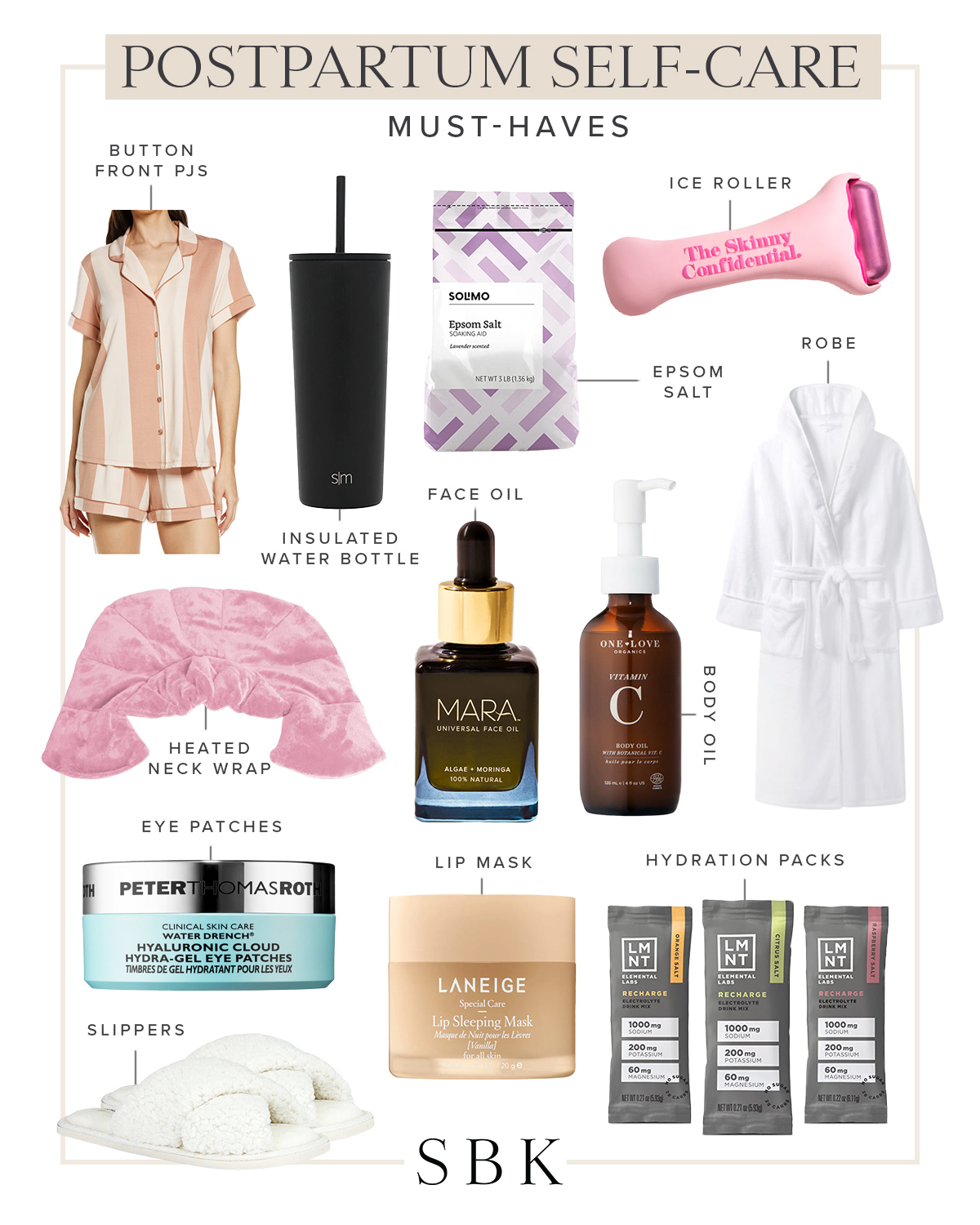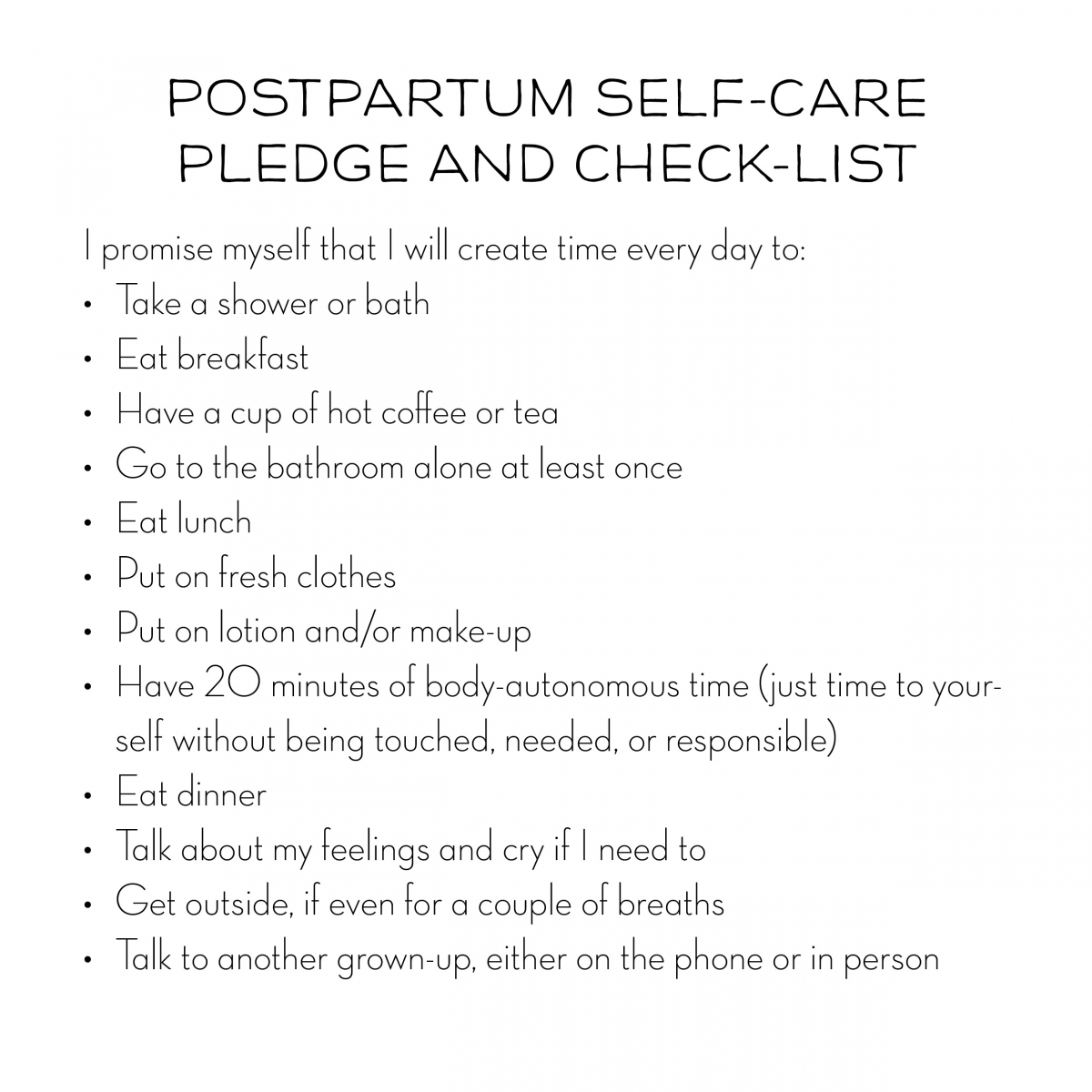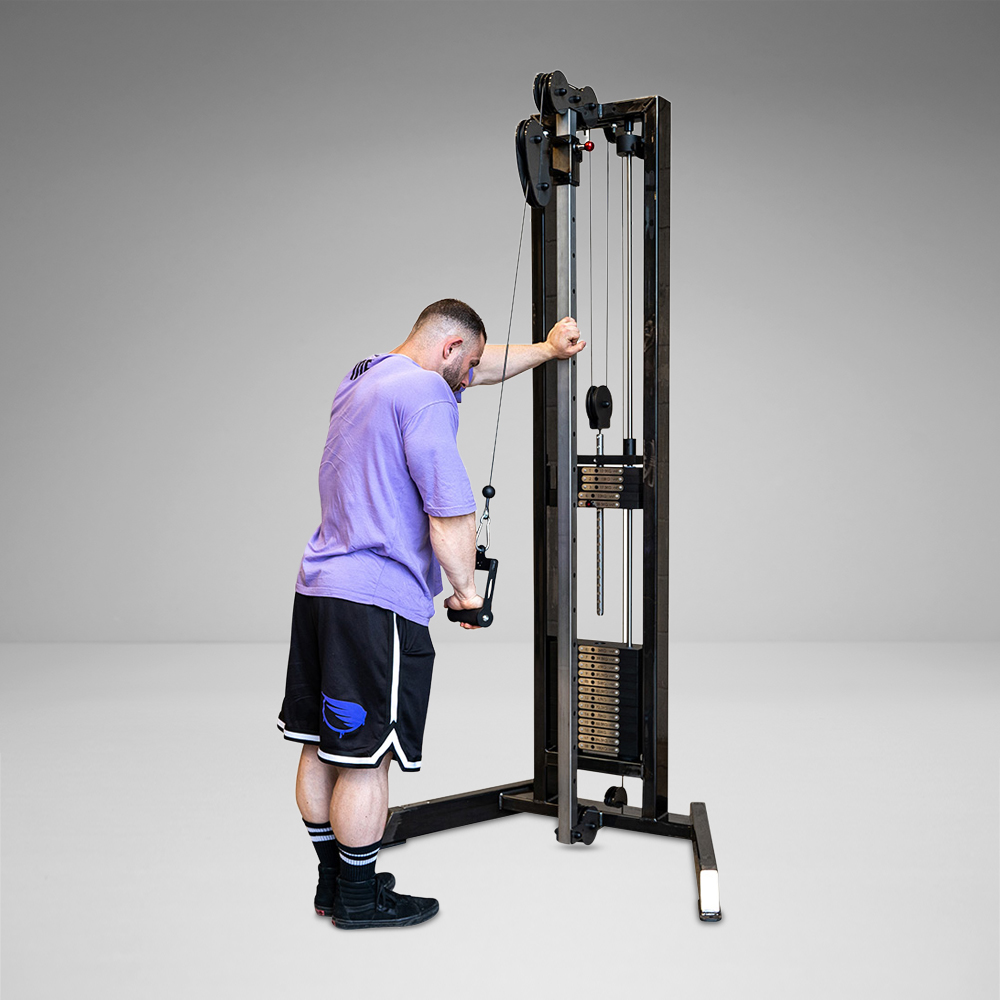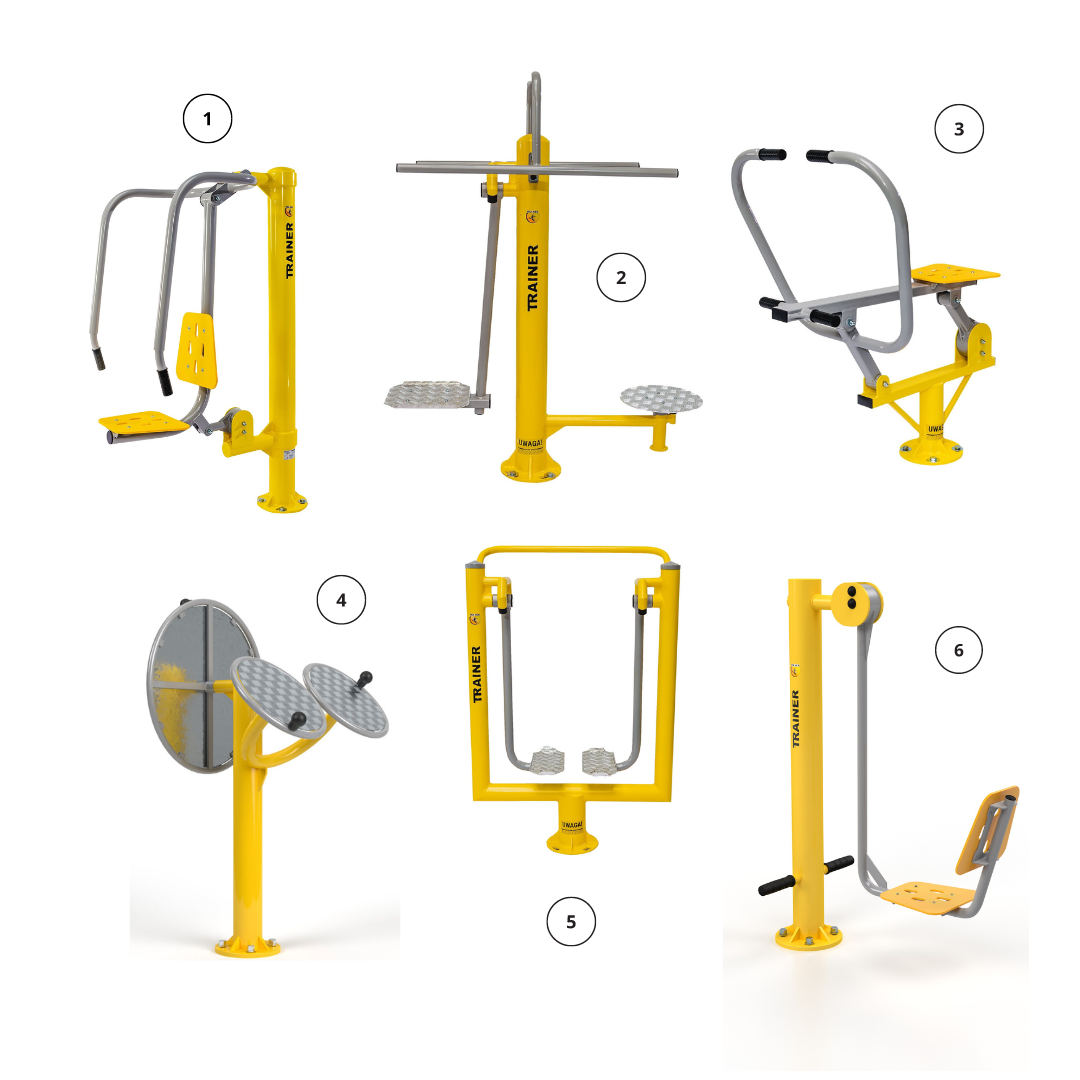Postpartum Self Care Essentials is crucial for a new mother’s physical and mental well-being. It involves rest, nutrition, and emotional support.
After childbirth, a mother’s body and mind need time to heal. Prioritizing self-care helps in recovering faster and maintaining overall health. Proper nutrition, hydration, and rest are essential. Light exercises can boost energy levels and mood. Seeking emotional support from friends, family, or support groups can alleviate feelings of isolation.
Regular medical check-ups ensure any complications are promptly addressed. Self-care also includes finding time for relaxation, whether through hobbies, meditation, or simply taking a break. A balanced approach to postpartum self-care benefits both the mother and the baby, fostering a healthy and happy environment.

Credit: www.mombosslife.co
The Importance Of Postpartum Self-care
Postpartum self-care is crucial for new mothers. It helps them recover and adjust after childbirth. The body and mind go through many changes. Taking care of yourself is essential for your well-being.
Physical And Emotional Changes
After childbirth, your body needs time to heal. You may experience soreness, fatigue, and hormonal shifts. Emotional changes like baby blues or postpartum depression are also common.
Understanding these changes can help you manage them better. It’s important to know what to expect and how to handle it.
The Role Of Self-care In Recovery
Self-care plays a vital role in recovery. It includes proper nutrition, rest, and emotional support. Eating well-balanced meals can boost your energy. Make sure you drink plenty of water.
Rest is equally important. Try to sleep when your baby sleeps. This helps you regain strength and reduces stress.
Emotional support is key. Talk to your partner, friends, or a counselor. Sharing your feelings can help you feel less overwhelmed.
Here are some self-care tips:
- Take short walks to improve mood.
- Practice deep breathing exercises.
- Set aside time for hobbies you enjoy.
Remember, taking care of yourself helps you take better care of your baby. Your well-being is important for your family’s happiness.

Credit: www.sbkliving.com
Creating A Comfortable Recovery Environment
Recovering after childbirth requires a calm and cozy space. Your surroundings should support rest and healing. Let’s explore how to create the perfect recovery environment.
Setting Up Your Recovery Space
Choose a quiet room with natural light. Keep it clean and clutter-free. Comfort is key, so add soft pillows and blankets.
- Soft Bedding: Ensure your bed is cozy and supportive.
- Adjustable Lighting: Use dimmable lights or bedside lamps.
- Quiet Ambiance: Minimize noise with soundproofing or white noise machines.
Essential Items For Comfort And Convenience
Have everything you need within reach. This reduces the need to get up often. Here are some must-have items:
| Item | Purpose |
|---|---|
| Nursing Pillow | Supports baby during feeding. |
| Water Bottle | Stay hydrated with ease. |
| Snack Basket | Healthy snacks for quick energy. |
| Baby Diapers and Wipes | Keep them handy for quick changes. |
| Comfortable Clothing | Wear loose, soft clothes. |
Arrange these items in a basket or cart next to your bed. This setup ensures you have everything you need without moving much.
Nutrition And Hydration For New Moms
After giving birth, a new mom’s body needs special care. Proper nutrition and hydration play a crucial role. They aid in recovery and support milk production for breastfeeding. Eating well and staying hydrated ensures both mom and baby stay healthy. Here’s a guide to help new moms focus on their nutrition and hydration needs.
Healthy Eating Guidelines
Eating a balanced diet is essential. It helps regain strength and energy. Follow these guidelines for a healthy diet:
- Fruits and Vegetables: Aim for five servings daily. They are rich in vitamins and minerals.
- Whole Grains: Include whole grains like brown rice and whole wheat bread. They provide sustained energy.
- Protein: Choose lean meats, beans, and nuts. Protein helps repair tissues.
- Dairy: Consume low-fat dairy products. They are important for bone health.
- Healthy Fats: Avocados, nuts, and olive oil are good sources. They support brain health.
Staying Hydrated For Milk Production
Hydration is key for new moms, especially for those who breastfeed. Proper hydration helps in milk production. Follow these tips to stay hydrated:
- Drink Water: Aim for at least 8 cups of water a day. Keep a water bottle handy.
- Hydrating Foods: Eat fruits like watermelon and cucumbers. They have high water content.
- Herbal Teas: Some herbal teas can boost milk production. Fenugreek tea is a popular choice.
- Avoid Dehydrating Drinks: Limit coffee and soft drinks. They can dehydrate the body.
Keeping a hydration schedule can help. Drink water before, during, and after breastfeeding sessions.
| Food Group | Examples | Benefits |
|---|---|---|
| Fruits and Vegetables | Apples, Carrots, Spinach | Rich in vitamins and minerals |
| Whole Grains | Oats, Brown Rice, Quinoa | Provide sustained energy |
| Protein | Chicken, Beans, Nuts | Helps repair tissues |
| Dairy | Milk, Yogurt, Cheese | Important for bone health |
| Healthy Fats | Avocado, Olive Oil, Nuts | Support brain health |

Credit: www.partumpanties.com.au
Physical Recovery Tips
After giving birth, your body needs time to heal. Understanding how to take care of yourself during this period is crucial. Here are some helpful Physical Recovery Tips to guide you through postpartum recovery.
Gentle Exercises For Postpartum Recovery
Exercise helps speed up recovery. Start with gentle exercises to regain strength.
- Walking: Begin with short walks around your home. Gradually increase the distance.
- Kegel Exercises: Strengthen pelvic floor muscles. Do these daily.
- Pelvic Tilts: Lie on your back, knees bent. Gently tilt your pelvis upward.
- Deep Breathing: Practice deep breathing to relax and engage core muscles.
Always listen to your body. Stop if you feel pain. Consult your doctor before starting any exercise routine.
Managing Soreness And Discomfort
Postpartum soreness is common. Here are ways to manage discomfort:
| Tip | Description |
|---|---|
| Ice Packs: | Apply ice packs to sore areas for 15 minutes. |
| Sitz Baths: | Soak in warm water to soothe perineal pain. |
| Pain Relief: | Use doctor-recommended pain relief medications. |
| Rest: | Get plenty of rest. Sleep when your baby sleeps. |
Staying hydrated is also important. Drink water regularly. This helps with recovery and energy levels.
Mental Health And Emotional Well-being
After childbirth, taking care of your mental health and emotional well-being is crucial. New mothers often experience a whirlwind of emotions. Balancing joy with stress can be challenging. It is essential to recognize and address these feelings promptly.
Recognizing Signs Of Postpartum Depression
Postpartum depression (PPD) can affect many new mothers. Recognizing its signs early can help in managing it effectively. Here are some common symptoms:
- Persistent sadness or feelings of hopelessness
- Loss of interest in activities once enjoyed
- Changes in appetite or sleep patterns
- Difficulty bonding with the baby
- Feelings of worthlessness or guilt
- Anxiety or panic attacks
If you notice these signs, seek help. Talking to a healthcare provider is crucial.
Strategies For Stress Management
Managing stress is vital for mental health. Here are some strategies:
- Practice mindfulness: Engage in deep breathing exercises or meditation.
- Stay active: Gentle exercises like walking or yoga can help.
- Connect with others: Talk to friends or join a support group.
- Set realistic goals and prioritize tasks.
- Ensure you get enough rest and sleep.
Implementing these strategies can make a big difference. Taking small steps daily can help reduce stress.
| Strategy | Details |
|---|---|
| Mindfulness | Deep breathing and meditation. |
| Stay Active | Gentle exercises like walking or yoga. |
| Connect | Talk to friends or join a support group. |
| Set Goals | Prioritize and manage tasks efficiently. |
| Rest | Ensure adequate sleep and relaxation. |
Remember, your mental health is just as important as your physical health. Taking care of yourself helps you care for your baby better.
Rest And Sleep Strategies
Rest and sleep are crucial for new moms. Sleep deprivation can affect your health. Finding strategies to maximize sleep is important. Let’s explore how you can achieve better rest.
Creating A Sleep-friendly Environment
Designing a sleep-friendly environment helps improve your sleep quality. Here are some tips:
- Keep the room dark: Use blackout curtains to block light.
- Maintain a comfortable temperature: Keep the room cool.
- Reduce noise: Use a white noise machine or earplugs.
- Choose comfortable bedding: Invest in a supportive mattress and pillows.
- Remove distractions: Keep electronics out of the bedroom.
Tips For Maximizing Rest With A Newborn
Resting with a newborn can be challenging. Here are some tips:
- Sleep when the baby sleeps: Nap during your baby’s naps.
- Share nighttime duties: Take turns with your partner.
- Keep essentials nearby: Have diapers and bottles within reach.
- Avoid caffeine: Limit caffeine intake in the afternoon.
- Stay hydrated: Drink water throughout the day.
- Practice relaxation techniques: Try deep breathing or meditation.
By following these strategies, you can improve your rest and sleep quality. Taking care of yourself is essential for your well-being and your baby’s health.
Personal Hygiene And Care
Personal hygiene and care are essential for new mothers. This period requires special attention to ensure recovery and well-being. Focusing on hygiene can help prevent infections and promote faster healing. Here’s what you need to know about postpartum personal hygiene and care.
Postpartum Bathing And Hygiene Practices
New mothers should follow specific bathing practices. This helps maintain cleanliness and promotes healing. Use lukewarm water for bathing to avoid irritation. Avoid hot baths, which can cause dizziness.
- Gentle Cleansing: Use mild, unscented soap to clean your body.
- Avoid Scrubbing: Be gentle on sensitive areas to prevent irritation.
- Pat Dry: Use a soft towel to pat your body dry.
Maintain a regular bathing routine. This helps you feel fresh and comfortable. Change your sanitary pads regularly to prevent infections.
Caring For C-section Incisions Or Perineal Tears
Special care is needed for C-section incisions and perineal tears. These areas are sensitive and prone to infections. Proper care ensures faster healing.
| Type | Care Tips |
|---|---|
| C-Section Incisions |
|
| Perineal Tears |
|
Follow these tips to ensure proper healing of your incision or tear. Always consult your healthcare provider for personalized advice.
Navigating Motherhood And Self-identity
Becoming a mother is a life-changing experience. Your world revolves around your baby. But it is crucial to maintain your self-identity. This journey requires balancing new responsibilities and personal time. Let’s explore how to navigate this path effectively.
Balancing Motherhood With Personal Time
Finding time for yourself can be challenging. Yet, it is essential for your well-being. Here are some tips to help you balance motherhood with personal time:
- Set a schedule: Plan your day with dedicated time slots for personal activities.
- Ask for help: Don’t hesitate to ask family or friends for support.
- Utilize nap times: Use your baby’s nap times to focus on yourself.
- Join a support group: Connect with other mothers to share experiences and tips.
Reconnecting With Your Interests And Passions
It is easy to lose sight of your hobbies and passions after childbirth. Reconnecting with your interests can rejuvenate your spirit. Here are some ways to reignite your passions:
- Start small: Dedicate a few minutes each day to your hobbies.
- Involve your baby: Find activities that you and your baby can enjoy together.
- Join a class: Enroll in a class or workshop related to your interest.
- Set goals: Create achievable goals to stay motivated.
| Activity | Time Required |
|---|---|
| Reading a book | 15-30 minutes |
| Yoga | 20-40 minutes |
| Painting | 30-60 minutes |
| Cooking a new recipe | 45-60 minutes |
Remember, taking care of yourself is not selfish. It is necessary for you and your baby. Prioritize self-care to be the best version of yourself.
Frequently Asked Questions
What Is The 5 5 5 Rule For Postpartum?
The 5 5 5 rule for postpartum recovery advises mothers to spend 5 days in bed, 5 days on the bed, and 5 days around the bed. This helps ensure ample rest and healing.
How Do I Take Care Of Myself Postpartum?
Rest, eat nutritious foods, and stay hydrated. Practice gentle exercises and seek support from family and friends. Attend postpartum checkups.
What Is The Hardest Day Of Postpartum?
The hardest day of postpartum varies for each woman. Commonly, the third or fourth day can be toughest. Hormone changes peak, and milk production starts, causing physical and emotional challenges.
What Do New Moms Need After Giving Birth?
New moms need rest, nutritious meals, hydration, and emotional support. Essential items include comfortable clothing, nursing supplies, and baby care products.
Conclusion
Embracing postpartum self-care is essential for new mothers. Prioritize rest, nutrition, and emotional well-being. Small steps make a big difference. A well-cared-for mom can better care for her baby. Remember, self-care is not selfish. It’s a necessary part of motherhood.
Celebrate your journey and take time for yourself.




Leave a Reply